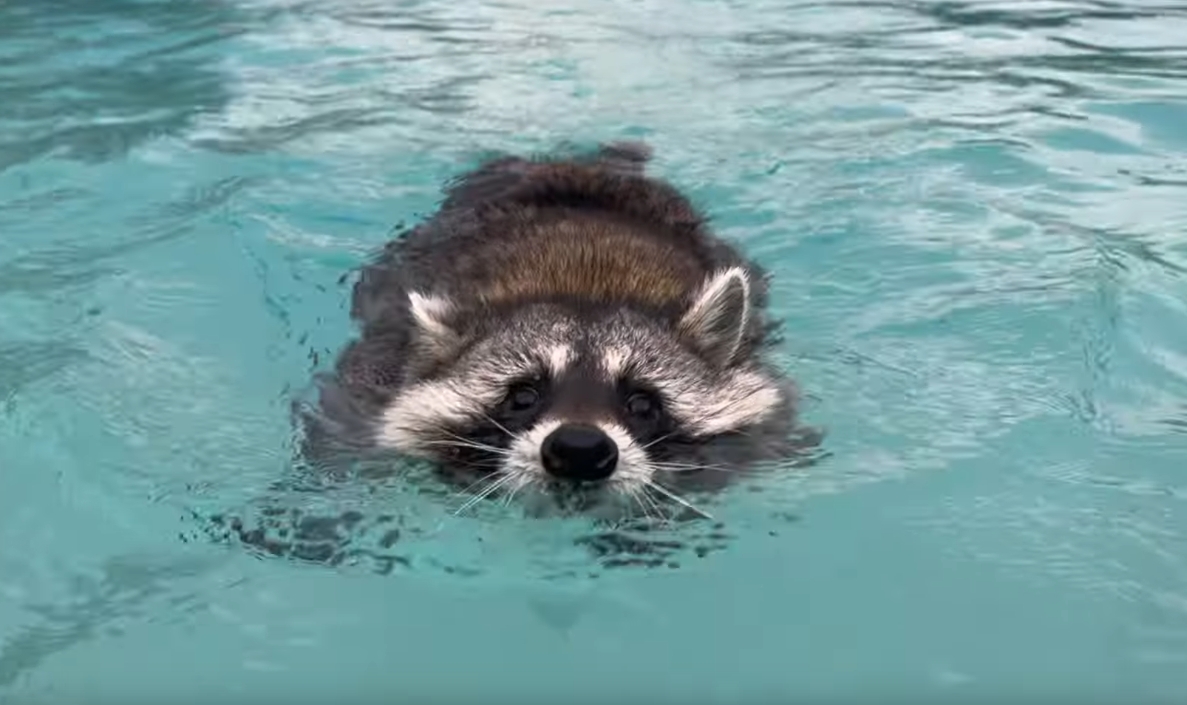I can’t believe it! I can’t think they can swim! They have been able to do so for ages, but no one has told me this until now. It’s a miracle of the world! How can these adorable little animals know how to float?
| Characteristic | Description |
|---|---|
| Swimming Ability | Raccoons are strong swimmers and can swim for long distances. |
| Adaptations | Raccoons have webbed feet and dense fur which helps them stay buoyant and move efficiently in water. |
| Habitat | Raccoons are found in a variety of habitats including wetlands, forests, and urban areas. They are commonly found near water sources such as streams, rivers, and ponds. |
| Behaviour | Raccoons are known to swim to escape predators or to find food. They are also known to swim in search of a new home or territory. |
| Drowning | Raccoons have a strong sense of self-preservation and are unlikely to drown in water. They can hold their breath for long periods of time and will come up for air when necessary. |
Do Raccoons Go in Water?
Contents
Whether you want to call them bandits, bandits of the forest, or just plain old raccoons, these masked mammals are found all over North America. We know they’re good climbers and seem to live in any habitat from wetlands to desert scrubland. But can they swim?
Well….maybe not so much. While it’s true that some people have seen raccoons swimming in lakes and rivers, most experts think this is an exception rather than a rule because raccoons don’t usually like water!
There are several theories about why they avoid it – one being that their fur might weigh them down too much for paddling around comfortably in the water. Another idea is that raccoons are more likely to be swept away in a current because of their long tails. So, while raccoons can swim if they have to, it’s not their favorite thing to do!
How Long Can a Raccoon Swim?
Raccoons are nocturnal mammals, which means they’re mostly active at night. They live in North and Central America and most of the major islands in the Caribbean. A raccoon’s fur is usually black or brownish with a white underbelly. Raccoons have long, bushy tails with four to six black rings.
Raccoons spend most of their time on the ground, but they can also climb trees as well as swim underwater for up to 15 minutes! If they need to, raccoons will float by holding onto things like logs floating around in rivers or ponds near where they live.
How Far Can a Raccoon Swim?
Raccoons are amazing creatures. Not only do they have dexterous hands that allow them to open locked doors and raid garbage cans, but they’re also great swimmers! In fact, raccoons can swim up to six miles without taking a break. This makes them the perfect creature to have around if you’re ever stranded in a body of water.
Even though they’re excellent swimmers, raccoons aren’t invincible. They can still drown if they stay in the water for too long or get caught in a current. So, if you see a raccoon swimming near your boat, be sure to give it plenty of space!
Can Raccoons Swim Fast?
Raccoons can’t swim fast. Raccoons are great swimmers, but they can’t go fast in the water. Raccoons use their paws as paddles which helps them move through the water leisurely. Raccoon’s body is very dense, and it displaces less water than other animals that might be able to swim faster, such as dogs or humans.
Do Raccoons Swim Under Water?
Raccoons are amazing creatures that can swim and float underwater. Raccoons have a unique way of swimming that helps them stay underwater for a long time. Raccoons are not the only animals that can swim underwater, but they are one of the few that can do it so well.
How to Keep Them Away from Your Pool
Raccoons are intelligent animals. They have opposable thumbs and can learn to do tricks, so it’s not surprising that they can figure out how to turn on a faucet or open a garbage bin. The truth is that raccoons are very good at extending your pool cover because they’re climbers who have no trouble getting up high enough to reach the top of your body. Once they’ve dislodged the outside, they’ll often just wait for you to step out to get in themselves.

The best way to keep them away from your pool is by using an automatic pool cover system that will work with any size of the swimming pool, whether it’s round or rectangular. You should also make sure there are no trees or branches nearby that the raccoons could use to get onto the roof of your pool cover. If you have a screened-in pool, keep the screens in good condition and make sure there are no holes or tears that would provide an accessible entrance for these critters.
Raccoon Swimming in Backyard Pool [Video]
FAQs
Do Raccoons Swim for Fish?
It is a well-known myth that raccoons cannot swim. In reality, they are excellent swimmers and will eagerly take to the water if given a chance. They can even float on their backs for hours at a time while waiting for fish to come by. This is primarily due to their webbed feet, which help them easily and quickly through the water. They also have very dense fur that keeps them warm when they dive under the water’s surface to catch food or escape from predators such as alligators or coyotes. In addition, their tail acts as a rudder for steering while swimming underwater so that they don’t need to use their paws much at all!
Are Raccoons Strong Swimmers?
They are the only North American mammal that can climb trees, and they are also excellent swimmers. Raccoons have been known to swim long distances in open water, and some have even been spotted swimming in the ocean! Raccoons typically use their swimming abilities to escape predators or search for food.
Can You Drown Raccoon?
Drown Raccoon. Drowning is a well-known cause of death in humans, but it’s also possible for animals to drown as well! However, there are some exceptions to this rule. For instance, raccoons can swim and float just fine. They not only know how to keep their head above water, they even have webbed toes that help them paddle effortlessly through the water. This unique skill has helped them survive worldwide, including North America, where they live near lakes and rivers or live in trees with easy access to ponds.





